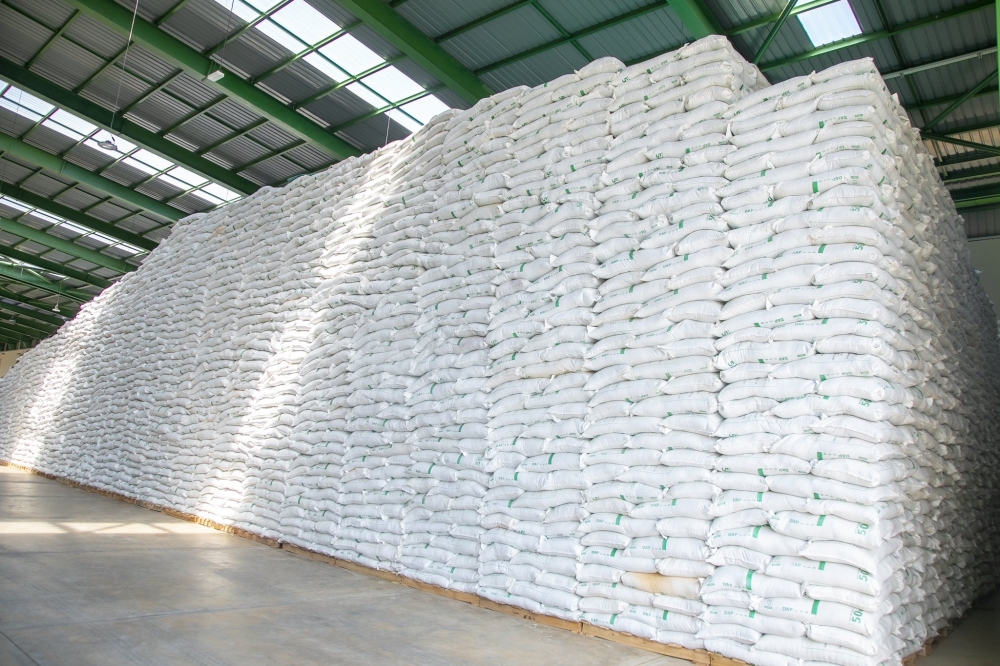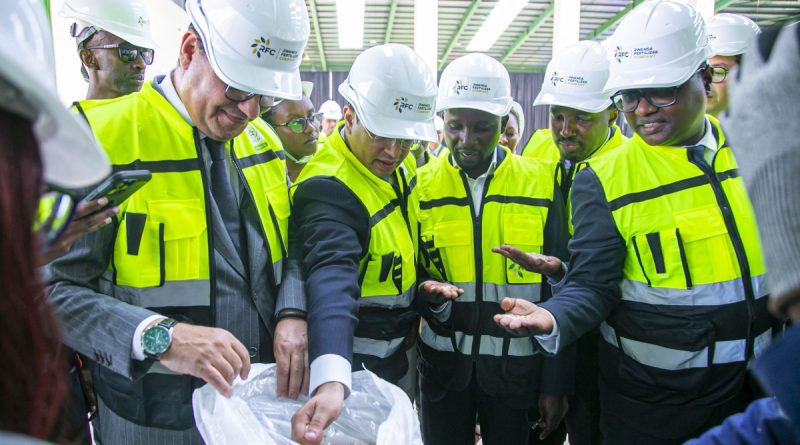Rwanda’s Visionary Fertiliser Blending Plant: A Catalyst for Agricultural Transformation and Food Security
Rwanda inaugurated a cutting-edge fertiliser blending factory in Bugesera on December 20, 2023, with a vision to boost crop yields by 40%, as highlighted by both the owners and the Ministry of Agriculture and Animal Resources (MINAGRI).
This Rwanda Fertiliser Blending Plant, strategically located in the Bugesera Special Economic Zone, employs a unique approach by blending fertilisers customized to specific soil and crop nutrient requirements. The facility, boasting a blending unit with a production capacity of 120 tonnes per hour (equivalent to 100,000 tonnes annually), surpasses Rwanda’s current demand of 85,000 tonnes, mostly met through imports.
The construction of this state-of-the-art plant amounted to over $19.2 million (approximately Rwf24 billion) and was established under the Rwanda Fertiliser Company (RFC), a collaboration between OCP Africa, Agaciro Development Fund, and Agro Processing Trust Corporation Ltd (APTC).
OCP Africa, a subsidiary of the global plant nutrition leader OCP Group, holds the majority of shares at 57.4%, with Agaciro Development Fund at 32.6%, and APTC at 10%.
The CEO of OCP Africa and Chairman of RFC, Mohamed Anouar Jamali, expressed confidence that the plant’s customized formulas would lead to a 40% increase in crop yield, impacting not only Rwanda but the entire region.
Anticipated benefits include the generation of approximately 50 direct jobs, expertise transfer to enhance Rwanda’s fertiliser industry skills, and a 25% increase in farmers’ income, contributing to economic empowerment.
Addressing challenges related to fertiliser access and food security, Minister of Agriculture and Animal Resources, Ildephonse Musafiri, emphasized the expectation of lower fertiliser prices through local blending. He noted that despite Rwanda’s low average fertiliser application of 60 kilograms per hectare, compared to developed countries applying around 140 kilograms, the new plant could rectify this imbalance.
The minister identified high costs as a major limitation to fertiliser use, even with government subsidies covering 40%. The hope is that the locally produced fertiliser, tailored to specific soil conditions, will lead to a 40% increase in farm yields, significantly impacting food consumption, exports, and overall nutrition in the country.
CEO of Agaciro Development Fund, Tesi Rusagara, highlighted the potential for increased financial autonomy for farmers and enhanced production in the agro-processing sector. She emphasized that the facility’s production capacity exceeds domestic demand, reducing the need for imports and positively impacting both the government’s finances and the country’s export capabilities.
Local farmers, like Godfrey Bagire from Nyagatare District, expressed optimism about the factory’s role in addressing delays in fertiliser access. He welcomed the opportunity to access quality fertiliser locally, reflecting the positive impact of the newly launched facility on agricultural practices in Rwanda.


